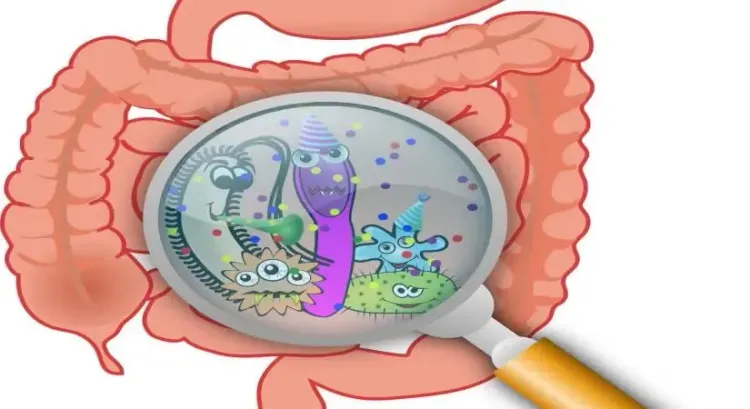Common gut bacteria may hinder effectiveness of diabetes and cancer medications: Research

Synopsis
Key Takeaways
- Gut bacteria can metabolize certain oral medications.
- This may reduce the effectiveness of drugs for migraines, depression, type 2 diabetes, and prostate cancer.
- Over 400 GPCR-targeting medications are affected.
- Understanding these interactions is vital for personalized medicine.
- More research is needed to assess the impact on patients.
New Delhi, April 3 (NationPress) Common gut bacteria possess the ability to metabolize certain oral medications, potentially diminishing the effectiveness of crucial treatments for migraines, depression, type 2 diabetes, and prostate cancer, as indicated by a study released on Thursday.
Researchers from the University of Pittsburgh and Yale University in the United States demonstrated that gut bacteria can metabolize oral drugs that interact with cellular receptors known as GPCRs.
Medications that target GPCRs encompass over 400 drugs approved by the US Food and Drug Administration (FDA) for various prevalent health issues, including migraines, depression, type 2 diabetes, prostate cancer, and more.
“It is essential to comprehend how GPCR-targeted drugs engage with human gut microbiota to further the goals of personalized medicine,” stated Qihao Wu, Assistant Professor at the Pitt School of Pharmacy.
“This investigation could pave the way for innovative drug design and therapeutic optimization, ensuring that treatments are more effective and safer for each individual,” Wu added.
The effectiveness of a medication can differ significantly among individuals, influenced by factors such as age, genetic composition, dietary habits, and more.
Recently, scientists uncovered that gut microbes can also metabolize orally administered medications. This process alters the drugs' chemical structures, affecting their efficacy.
To identify which gut bacteria metabolize specific drugs, the research team constructed a synthetic microbial community consisting of 30 prevalent bacterial strains found in the human gut.
In their laboratory experiments, they introduced each of the 127 GPCR-targeting drugs individually into tubes containing the bacteria.
The results revealed that the bacterial mix metabolized 30 out of the 127 drugs tested, with 12 being significantly metabolized. This indicates that the concentrations of the original drugs were substantially reduced as they were transformed into different compounds.
Overall, the study's findings, published in the journal Nature Chemistry, suggest that “particular gut bacteria may render GPCR-targeting drugs less effective by converting them into alternative compounds,” the researchers noted. They emphasized the need for further studies to understand the potential implications for patients and cautioned that individuals should not alter or cease their medications without consulting their healthcare provider.










